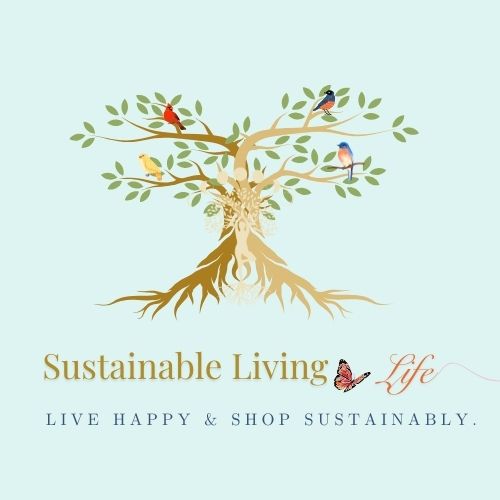
3 most simple but impactful switch to sustainable living!
Share
3 most simple but impactful switches to Sustainable Living!
Ready to make a big impact to the greater Earth with small steps? Let's dive into sustainable living by starting saying goodbye to plastic wastes! Every little change counts, and it's easier than you think. This post is all about three super-simple swaps : reusable water bottles, food storage, and sustainable straw alternatives.
Reusable Water Bottles:

Imagine this - by just using a reusable water bottle, you can stop 156 plastic bottles per year from polluting our planet. That's a lot of bottles saved from landfills and oceans!
Environmental Impacts:
- Reduces Plastic Pollution: Switching to reusable bottles significantly cuts down on the billions of plastic bottles that end up in landfills or as pollution.
- Conserves Energy and Resources: Using reusable bottles decreases the demand for manufacturing new plastic bottles, saving energy and raw materials.
- Lowers Carbon Emissions: The production and transportation of disposable plastic bottles contribute to high carbon emissions, which are reduced by using reusable options.
- Protects Water Sources: Opting for tap or filtered water in reusable bottles helps preserve natural water sources from the effects of bottled water extraction.
Cost Benefits:
- Saves Money: Investing in a reusable water bottle can lead to substantial savings compared to the ongoing cost of buying single-use bottles.
- Long-lasting: Reusable water bottles, especially those made from durable materials like stainless steel, can be used for years, offering long-term savings.
- Encourages Better Hydration: Having a reusable bottle makes it easier to stay hydrated, potentially reducing the need for other purchased beverages.
By choosing reusable water bottles, you can make a significant impact on reducing environmental harm while also enjoying practical and economic benefits. This simple switch is an effective step towards a more sustainable and health-conscious lifestyle.
Reusable Food Storage Options:

Plastic sandwich bags and plastic wraps contribute significantly to our plastic waste. While the average number of plastic sandwich bags used within 7 days in the United States is unknown, studies suggest that the average American family uses 500 Ziploc bags per year. Assuming a family of four uses Ziploc bags equally, that would be 125 bags per person per year, or approximately 0.34 bags per day. By switching to reusable options, such as silicone food bags and beeswax wraps, you can save a significant amount of plastic waste. For instance, using a reusable silicone food bag instead of a single-use plastic bag can save up to 3000 plastic bags per year. Similarly, opting for a reusable beeswax wrap instead of plastic wrap can save up to 2000 square feet of plastic wrap annually. From personal experiences, I understand ziplock bags are convenient and hardest to switch. However, this one change in habit is the most impactful considering the significant of micro-plastic wastes currently in the environments and food chains.
Environmental Impacts:
- Reduces Single-Use Plastic Waste: Replacing plastic bags and containers with zero waste solutions like silicone bags, stainless steel lunch boxes, and beeswax wraps significantly cuts down on plastic waste.
- Promotes Sustainability: Materials like stainless steel, glass, and silicone are more environmentally friendly compared to single-use plastics.
Cost Benefits:
- Durability Saves Money: Sustainable food storage options are generally more durable and long-lasting than disposable ones, reducing the need for frequent replacements.
- Economic Efficiency: Investing in sustainable food storage solutions like silicone bags or beeswax wraps can save money in the long run by eliminating the need for disposable alternatives.
Sustainable Straw Alternatives:

Plastic straws are a major contributor to plastic pollution. it is estimated that the average American uses 1.6 straws per day. If we assume that a person uses one decomposable straw per day, they would save 584 plastic straws in a year. While decomposable straws are a more environmentally friendly option, it is important to note that they still have a carbon footprint and require proper disposal. Some decomposable straws made from materials like cornstarch require a lot of energy to produce and can contribute to deforestation. Therefore, it is crucial to use decomposable straws responsibly and dispose of them properly.
Environmental Impacts:
- Reduces Plastic Waste: Sustainable straws, such as bamboo, metal, and glass, help decrease the vast amount of plastic straws that contribute to pollution.
- Biodegradable and Compostable: Options like sugarcane, coffee ground, and grass straws are biodegradable, reducing their environmental footprint.
- Made from Renewable Resources: Many sustainable straws are made from renewable materials like bamboo, sugarcane, and coffee grounds.
Cost Benefits:
- Reusable and Long-lasting: Durable materials used in metal, bamboo, and glass straws offer long-term use and savings over disposable straws.
- Benefit in the Long Run: Eco-friendly straw may cost higher at for user, but the environment benefits in the long run for marine life in oceans out-weight the cost.
Switching to reusable water bottles, sustainable straw and eco-friendly food storage options not only benefits the environment by reducing waste and conserving resources but also offers financial advantages through their durability and reusability. This simple change can have a significant impact on promoting a more sustainable and eco-friendly lifestyle. Sustainable living lifestyle, on the other hand, bring us the feeling of joy and simple happiness, then why don't we adopt the changes, and embrace the challenge?
When is the time to change, if not NOW?
Jane Ho is the founder of Sustainable Living Life, who set her life goals to helping families create toxin-free, eco-conscious and healthier homes. Follow along for weekly tips and sustainable swaps that make green & healthy living effortless!
Related Articles
🔗 How to Conduct a Kitchen Audit for Hidden Toxins
🔗 The Hidden Link Between Eco-Friendly Living and Family Wellness
